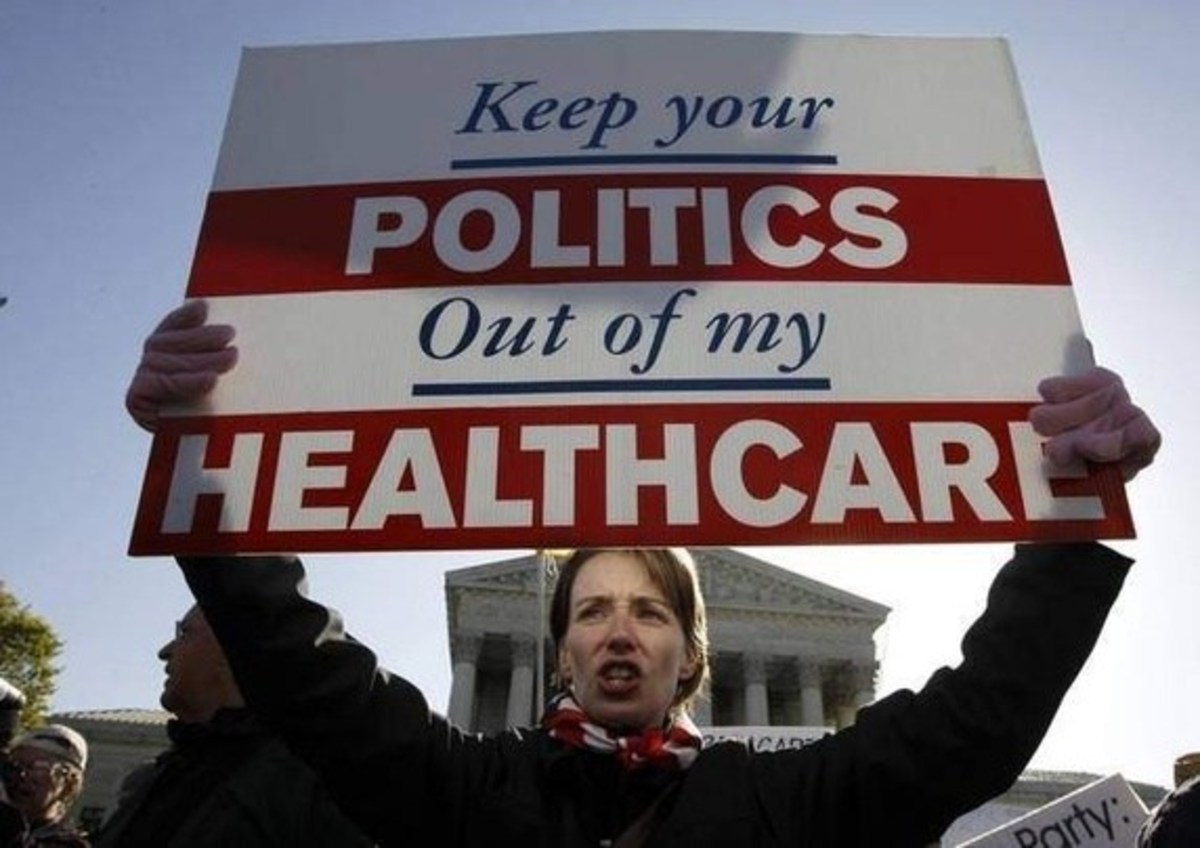Barriers to Quality and Affordable Health Care

What is a personal challenge for attaining quality and affordable health care?
SOCIOECONOMICS
Socioeconomics plays an important role in a family's decision to seek medical assistance. When analyzing socioeconomics, healthcare barriers are present, because health services are limited or unavailable. For example, on the south side of Chicago, low-income residents have access to Board of Health facilities or Cook County Hospitals. Board of Health facilities accept patients on a first come and first service policy. Patients come to the health facility by 8:00 am to receive healthcare services. Unfortunately, 50 or more patients may be waiting before 8:00 am for similar services. Based on health, extra patients receive an appointment: A patient can avoid waiting in line by calling for a doctor’s appointment. However, the appointment is scheduled two or three months later. Patients have similar experiences in Cook County Hospital emergency rooms.
Waiting for a two or three-month doctor’s appointment, facing long lines, and long hours discourages individuals seeking healthcare services. In Chicago, many major hospitals are available for patients. However, individuals without little or no insurance can be turned away except in emergencies. After initial emergency services is provided, a patient may receive follow up appointments. Thus far, Cook County Hospital takes all patients regardless of income. Many low-income patients qualify for limited health insurance from the state government. Limited state health insurance funding plays a significant role in helping families receive health care. The writer’s mother spent three days in a county hospital after an operation for a cancerous tumor removal. State hospital budgets prefer patients to recuperate at home, because of cost and bed availability. Unfortunately, state hospitals are overloaded with patients.
Experiences determine the regularity an individual seeks medical attention. In some cases, patients wait until an illness has escalated, which may require extensive medical services and funding. One study “found that some of the most consistent correlates of screening utilizations were economic; poverty, unemployment, and lack of health insurance.” (James, Hall, Greiner, Buckles, Born, & Ahluwalia, 2008, p. 4). Because of the recession, more individuals are without insurance and delay doctor’s visits. In addition, state funding shortfalls for healthcare facilities that low-income patients rely upon are removing hospital stays and charging for services. Patients and providers are adversely affected by the recession.
LOSS OF EMPLOYMENT
Loss of employment is another barrier to receiving healthcare. If a person qualifies for unemployment insurance payments, the cost of insurance is high. Unfortunately, a patient needs to determine, which is more important; food, rent, utilities, or insurance payments. Unemployment income may not match the funds of the loss job. Therefore, patients need to simplify and spend on the necessities. If a patient has children, the financial burden is greater. Thus, parents may rely upon state clinics or county hospitals to defray medical costs. However, state medical facilities charge for services, but the patient can be billed. Depending upon the ailment, cost can escalate beyond what an individual is able to pay. The Department of Human Services can cover most medical charges, but with funding limitations for qualifying patients. The uncertainty regarding the ability to pay for medical cost may discourage one to postpone seeking medical help.
LANGUAGE & LITERACY
Language and literacy can be a barrier to healthcare. “Language barriers, socioeconomic factors, psychological trauma relating to migration and alternative health-seeking behaviors are just a few of the constraints that are likely to have a detrimental impact on health in these populations.” (Caperchione, Kolt, & Mummery,2009, p. 2). Although hospitals and state clinics have increased bilingual staff, patients may initially fear understanding a doctor of another language. Undocumented patients from another country may fear deportation laws regardless of medical promise of discretion.
MISTRUST
.In addition, trust plays a major role in seeking medical attention. In the writer’s family and community, patients find leaving absolute control to a doctor as difficult. Medicine prescriptions and tests are taken apprehensively. Patients feel that doctors are capable of solving health problems: However, when patients have limited or no insurance, apprehension is present regarding receiving the best services. Doctors have the challenge of servicing patients with limited medical histories and providing the best services presents a challenge. Therefore, patients must relate any medical history and prescriptions to help doctors. In emergencies, doctors may depend on family members to relate medical histories. Hence, family members need to appoint an individual to handle the medical staff’s questions when a patient is unconscious.
Filling out medical forms presents a challenge for individuals lacking literacy skills. Cultural fears, negative experiences, and environmental circumstances may affect a person’s ability to attain a minimal education. Therefore, many hospitals have staff that can help patients fill out necessary paperwork. However, the embarrassment of sharing personal information or admitting ones lacks of reading and writing skills can be a barrier to entering a medical facility. Unfortunately, a person may postpone medical services until the situation is severe. A serious challenge for doctors is to retrieve a medical history in emergency situations. Medical histories may be limited, because of fears, illiteracy, and prejudices. As a result, patients run a greater risk of initial misdiagnosis, because doctors lack patient medical background.
CULTURE
Culture plays a significant role in healthcare barriers through negative perceptions or fears regarding medical care. Community and family experiences can adversely affect one’s reliance on medical professionals. Medical fraud and abuse, present realistic challenges to feeling comfortable or trusting doctors and staff. Although fraud or abuse represents a small percentage of negative experiences, when evident, patients may develop a phobia or apprehensiveness regarding medical services. In one case, a doctor was found guilty of abusing patients. (Nix, 2012) Medical crimes add to patients’ fear, which affects fully trusting a medical professional. One study created a list of barriers to receiving health care services for cancer patients and mentioned “Fear of embarrassment with endoscopy.” (James, Hall, Greiner, Buckles, Born, & Ahluwalia, 2008, p.3) Culturally, patients may have difficulty with a doctor of the opposite sex: Therefore, doctor’s need to work on increasing patient trust.
Another cultural barrier to medical services is an individual’s religious belief. A patients desire to uphold religious convictions regarding refusal of certain medical procedures can adversely affect the medical staff and patient’s relationship. For example, a patient may refuse a certain medicine or product, which may result in the medical staff adding pressure to a patient. In personal experiences, a few patients mentioned that medical staff would enter the room at night while the patient is sedated and ask the patients approval to perform a procedure: Fortunately, not all doctors’ resort to the following tactics. However, past negative experiences may play a role in seeking medical assistance.
In conclusion, quality and affordable healthcare is important for all patients. However, barriers exist to receiving effective medical services. Socioeconomically, limited or no insurance, is a barrier to receiving medical services. Loss of income means that patients may lose medical insurance. The long waiting room times and the uncertainty of state funding for medical bills discourages individuals from seeking medical help. Therefore, patients may postpone medical help in emergencies. Language and literacy can present challenges for patients seeking medical attention. Cultural beliefs can affect how one views medical staff or certain procedures. Trust plays an important role in accepting medical assistance: Negative experiences with medical staff may influence patients to postpone medical attention. Therefore, a patient may not develop a consistent medical history, which can initially affect medical services. Barriers to medical services are diverse and unique to each individual. Doctors and patients need to communicate problems or barriers that may affect receiving quality medical care.
References
Caperchione, C. M., Kolt, G. S., & Mummery, W. (2009). Physical activity in culturally and linguistically diverse migrant groups to Western society: A review of barriers, enablers and experiences. Sports Medicine, 39(3), 167-177. doi:10.2165/00007256-200939030-00001
James, A. S., Hall, S., Greiner, K., Buckles, D., Born, W. K., & Ahluwalia, J. S. (2008). The impact of socioeconomic status on perceived barriers to colorectal cancer testing. American Journal of Health Promotion, 23(2), 97-100.
Nix, N. (2012). Berwyn doctor found guilty of sexually assaulting patient. Chicago Tribune News. Retrieved from website : http://articles.chicagotribune.com/2012-05-08/news/ct-met-doctor-charged-20120508_1_berwyn-doctor-sexual-assault-ricardo-arze
Health Care Resources
U.S Department of Health & Human Services
http://minorityhealth.hhs.gov/templates/browse.aspx?lvl=2&lvlID=18
Youths, Adults, and Affordable Health Care Act
http://www.healthcare.gov/news/factsheets/2011/08/young-adults.html








